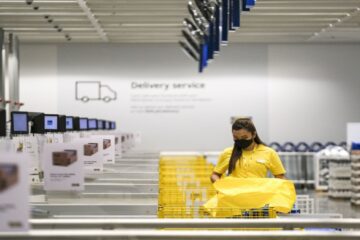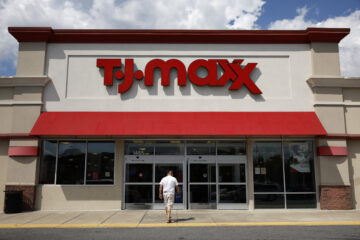The CEO of social media giant Meta is pessimistic about the economy and is looking for ways to keep his company profitable.
Times are tough even for the giants of Silicon Valley that are accustomed to big profits.
In recent months, the storm on the financial markets has particularly shaken the Nasdaq index, which is dominated by technology groups. Investors fearing a recession are liquidating their positions in risky assets. This particularly affects tech, which lives mainly on promises of future products and services.
Big Tech is not spared, especially since the slowdown in the world economy should also impact them because they are multinationals, present in many countries around the world. This is the case of Meta Platforms (META) – Get Meta Platforms Inc. Report, the parent company of social media platforms Facebook and Instagram.
The firm is one of the biggest players in online advertising, where Meta only trails Google (GOOGL) – Get Alphabet Inc. Report in terms of market share. According to experts, the economic slowdown, or worse, the recession will force companies and advertisers to reduce their budgets dedicated to marketing and advertising, which should logically affect Meta and Google for example.
CEO Mark Zuckerberg told employees on June 30 during the traditional weekly Q&A session to expect the “one of the worst downturns that we’ve seen in recent history.”
“If I had to bet, I’d say that this might be one of the worst downturns that we’ve seen in recent history,” Zuckerberg told staff, according to Reuters.
Drew Angerer/Getty Images
Reducing Hiring
Consequently, Meta will accentuate its cost reduction policy. The firm only plans to hire between 6,000 and 7,000 new engineers in 2022, against an initial project of 10,000 new recruits, indicates Reuters. It is therefore a revision of 30% to 40%.
In May, a source told TheStreet that the social media giant was planning to halt or in some cases slow hiring for most mid-to-senior level positions. The goal was to revise priorities and align hiring targets with current market estimates and pacing, the source said.
“We regularly re-evaluate our talent pipeline according to our business needs and in light of the expense guidance given for this earnings period, we are slowing its growth accordingly,” a Meta spokesperson told TheStreet at the time in an emailed statement. “However, we will continue to grow our workforce to ensure we focus on long-term impact.”
But in a recent memo, chief product officer Chris Cox said that: “I have to underscore that we are in serious times here and the headwinds are fierce. We need to execute flawlessly in an environment of slower growth, where teams should not expect vast influxes of new engineers and budgets.”
He added that:
“We must prioritize more ruthlessly, be thoughtful about measuring and understanding what drives impact, invest in developer efficiency and velocity inside the company, and operate leaner, meaner, better exciting teams.”
Pushing Employees Out
Besides cutting hiring, Zuckerberg has found another way to cut costs: pushing current employees out. To do this, Meta will set aggressive performance goals that will be difficult for some employees to achieve.
“Realistically, there are probably a bunch of people at the company who shouldn’t be here,” the chief executive said.
“Part of my hope by raising expectations and having more aggressive goals, and just kind of turning up the heat a little bit, is that I think some of you might decide that this place isn’t for you, and that self-selection is OK with me,” he added.
In April, Zuckerberg tried to downplay the turnover of Meta employees, amid concerns that Meta’s stock market slump might prompt some employees to leave because the value of their stock options was decreasing.
“One thing that I want to add just as a bit of cultural commentary on the attrition question, is I don’t think that this sort of volatility that companies face is always that unhealthy for making sure that you have the right people at companies,” the young billionaire told analysts during the first quarter earnings’ call.
“I mean during Covid, we saw the attrition levels go down a lot because people didn’t want to get new jobs, which probably meant that there were people who were staying at the company who didn’t care that much about what we were doing as compared to what we would have wanted.”
He added that: “I’m just trying to lead the company in a way where we’re positioning ourselves as the premier company for building the future of social interaction and the metaverse. If you care about those things, I think we’re getting the best people to come work here.”
Meta shares, which closed 2021 at $336.35, fell 53.7% to $155.83 as of June 30.
The firm didn’t respond to a request for comment.


